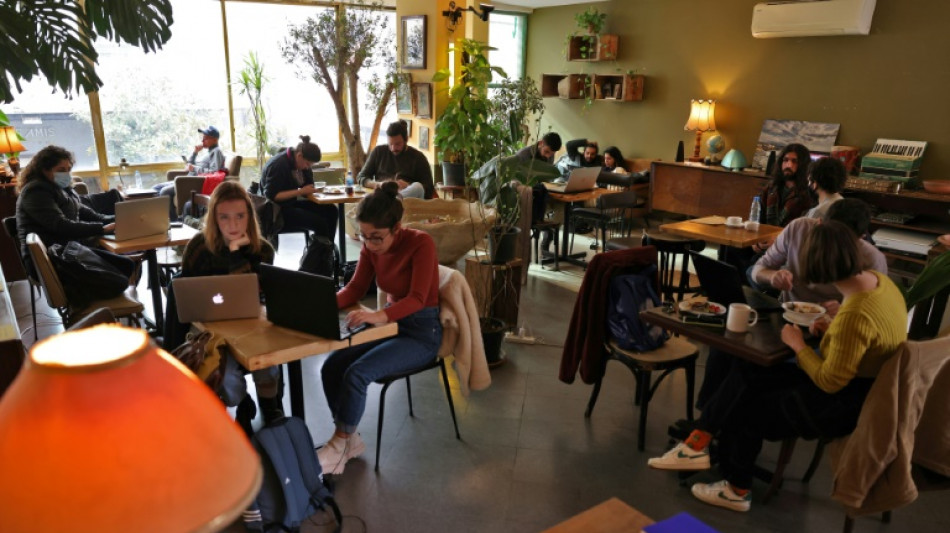
-
 Novo Nordisk launches bidding war with Pfizer for obesity drugmaker Metsera
Novo Nordisk launches bidding war with Pfizer for obesity drugmaker Metsera
-
Universal says struck first licensing deal for AI music

-
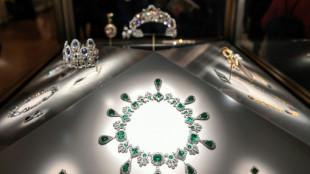 France arrests five new suspects over Louvre heist: prosecutor
France arrests five new suspects over Louvre heist: prosecutor
-
Stocks fall as investors eye Trump-Xi talks, earnings
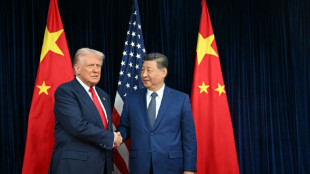
-
 Record Vietnam floods kill 10, turn streets into canals
Record Vietnam floods kill 10, turn streets into canals
-
Trump orders US to start nuclear weapons testing

-
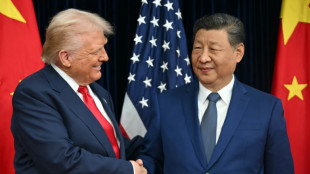 'Significant' Xi, Trump talks win cautious optimism in China
'Significant' Xi, Trump talks win cautious optimism in China
-
French justice minister visits jailed former president Sarkozy

-
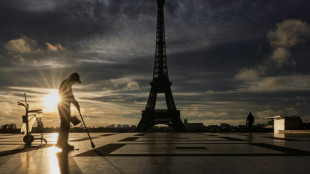 Eurozone growth beats expectations in third quarter
Eurozone growth beats expectations in third quarter
-
Bali trial begins for 3 accused of Australian's murder

-
 Dutch election a photo finish between far-right, centrists
Dutch election a photo finish between far-right, centrists
-
IOC removes Saudi Arabia as host of inaugural Esports Olympics
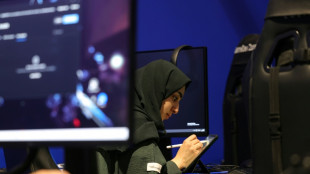
-
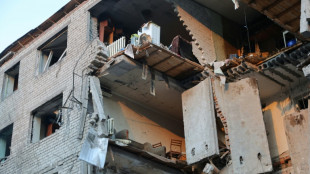 Russia batters Ukraine energy sites, killing two
Russia batters Ukraine energy sites, killing two
-
Shell's net profit jumps despite lower oil prices

-
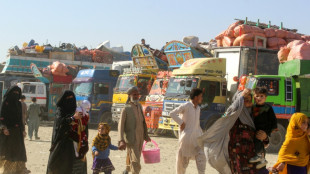 Pakistani security source says Afghanistan talks 'likely' to resume
Pakistani security source says Afghanistan talks 'likely' to resume
-
Fentanyl, beans and Ukraine: takeaways from Trump-Xi's 'great meeting'
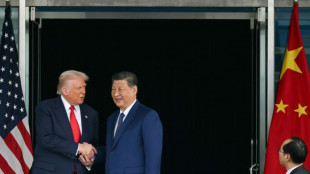
-
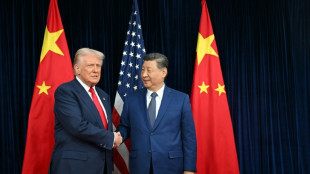 Asia markets fluctuate as investors examine Trump-Xi talks
Asia markets fluctuate as investors examine Trump-Xi talks
-
Branson's Virgin moves closer to launching Eurostar rival

-
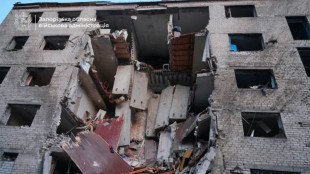 Russia hits Ukraine energy sites, killing one, wounding children
Russia hits Ukraine energy sites, killing one, wounding children
-
Asia markets fluctuate as investors mull Trump-Xi talks
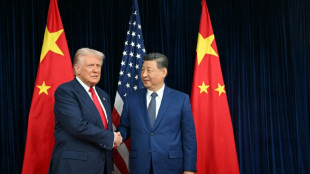
-
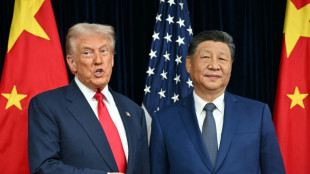 Trump, Xi ease fight on tariffs, rare earths
Trump, Xi ease fight on tariffs, rare earths
-
Volkswagen posts 1-billion-euro loss on tariffs, Porsche woes
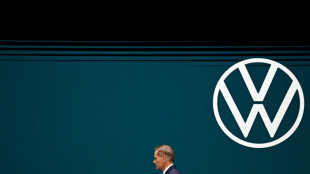
-
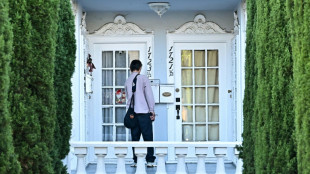 'Fight fire with fire': California mulls skewing electoral map
'Fight fire with fire': California mulls skewing electoral map
-
Fentanyl, beans and Ukraine: Trump hails 'success' in talks with Xi
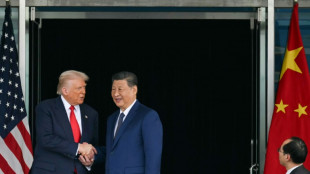
-
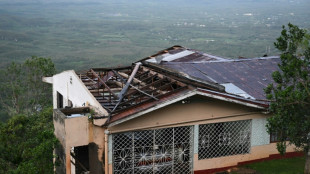 'Nowhere to sleep': Melissa upends life for Jamaicans
'Nowhere to sleep': Melissa upends life for Jamaicans
-
Irish octogenarian enjoys new lease on life making harps
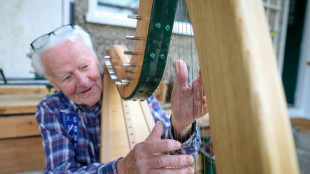
-
 Tanzania blackout after election chaos, deaths feared
Tanzania blackout after election chaos, deaths feared
-
G7 meets on countering China's critical mineral dominance

-
 Trump hails tariff, rare earth deal with Xi
Trump hails tariff, rare earth deal with Xi
-
Court rules against K-pop group NewJeans in label dispute

-
 India's Iyer says 'getting better by the day' after lacerated spleen
India's Iyer says 'getting better by the day' after lacerated spleen
-
Yesavage fairytale carries Blue Jays to World Series brink

-
 Bank of Japan keeps interest rates unchanged
Bank of Japan keeps interest rates unchanged
-
Impoverished Filipinos forge a life among the tombstones

-
 Jokic posts fourth straight triple-double as Nuggets rout Pelicans
Jokic posts fourth straight triple-double as Nuggets rout Pelicans
-
UN calls for end to Sudan siege after mass hospital killings

-
 Teenage Australian cricketer dies after being hit by ball
Teenage Australian cricketer dies after being hit by ball
-
As Russia advances on Kupiansk, Ukrainians fear second occupation

-
 Trade truce in balance as Trump meets 'tough negotiator' Xi
Trade truce in balance as Trump meets 'tough negotiator' Xi
-
China to send youngest astronaut, mice on space mission this week

-
 Yesavage gem carries Blue Jays to brink of World Series as Dodgers downed
Yesavage gem carries Blue Jays to brink of World Series as Dodgers downed
-
With inflation under control, ECB to hold rates steady again

-
 Asia stocks muted with all eyes on Trump-Xi meeting
Asia stocks muted with all eyes on Trump-Xi meeting
-
Personal tipping points: Four people share their climate journeys

-
 Moto3 rider Dettwiler 'no longer critical' after crash: family
Moto3 rider Dettwiler 'no longer critical' after crash: family
-
US economy in the dark as government shutdown cuts off crucial data

-
 Trump orders nuclear testing resumption ahead of Xi talks
Trump orders nuclear testing resumption ahead of Xi talks
-
'Utter madness': NZ farmers agree dairy sale to French group

-
 Samsung posts 32% profit rise on-year in third quarter
Samsung posts 32% profit rise on-year in third quarter
-
30 years after cliffhanger vote, Quebec separatists voice hope for independence


Lebanon power cuts turn cafes into co-working spaces
The music is often hushed and the atmosphere studious -- for the patrons filling Beirut's cafes these days, the most important things are good lighting and stable wi-fi.
That's because they now serve as substitute workplaces for people grappling with drastic electricity shortages and internet cuts stemming from Lebanon's unrelenting economic crisis.
Aaliya's Books, in the heart of the capital's once-fabled nightlife spot of Gemmayzeh, is one such sanctuary.
"Most of the time, if I come here, it's because I don't have electricity at home," said Maria Bou Raphael, nestled on a sofa.
The power cuts, extending to 23 hours a day, have left many already deprived of an office by Covid restrictions with no option but to plant themselves in cafes all day, especially as the quality of many internet connections has also plummeted.
Generators -- the only way to keep devices charged and connected -- are too expensive for many Lebanese, as they grapple with an economic crisis that has seen the local currency lose more than 90 percent of its black market value in recent years.
Cafes are therefore among the few businesses to have largely bucked the wider meltdown driven by corruption, capital flight and would-be donors' reluctance to throw good money after bad.
Aaliya's Books manager Niamh Flemming Farrell said that on weekdays her establishment feels more like a co-working space, with some customers staying for a full day.
The sense of community created by the service that she provides to the neighbourhood is reviving a cafe culture that had faded in recent years.
Doubling up as a bookshop, the cafe takes its name from Aaliya Saleh, the central character in "An Unnecessary Woman", a novel by acclaimed Lebanese-American author Rabih Alameddine.
The narrative focuses on a 72-year-old who lives secluded in her Beirut flat, in the sole company of her books while the 1975-1990 civil war rages outside.
- 'Relaxed spot' -
"We noticed that... our customers started working additional hours in our branches, fancying the locations that provide a higher level of comfort," said a spokesman for Cafe Younes, a roastery with 10 coffee shops mostly in the capital.
Cafe Younes opened a new large branch in Beirut's central Hamra district a year ago that includes a multi-purpose study room with large desks each equipped with power sockets.
Barzakh is another multi-purpose cafe that opened recently on the first floor of a busy building on the Hamra thoroughfare.
Hamra used to epitomise a Beirut cafe culture that had its heyday in the 1960s but was gradually wiped out by bars conducive to more boisterous socialising.
"I can see people running and yelling (outside) but I'm sitting here quietly in a relaxed spot," said fashion design student Mustafa al-Sous said, sitting beside a large window.
The young man sees Barzakh as a haven from the doom and gloom that has been so pervasive across Lebanon in recent years, but also as a place where he can work.
Notebooks and laptops clogged the tables in this cafe, while tangled charger cables strewn across the floor threatened to trip waiters.
"Originally we wanted to ban laptops," Mansour Aziz, the founder of the cafe-cum-library, which also hosts live shows in the evenings, recalls with a disbelieving smile.
Many here, dragged out of their homes by the electricity crisis, now rely on the cafes for their social life, especially those who can no longer afford to party in the evenings.
At Barzakh, patrons will often greet each other with a nod from across the room and come to know each other gradually.
"I'm a very sociable person," Mustafa said. "I like it when people walk over to ask me what I'm working on."
F.AbuZaid--SF-PST
